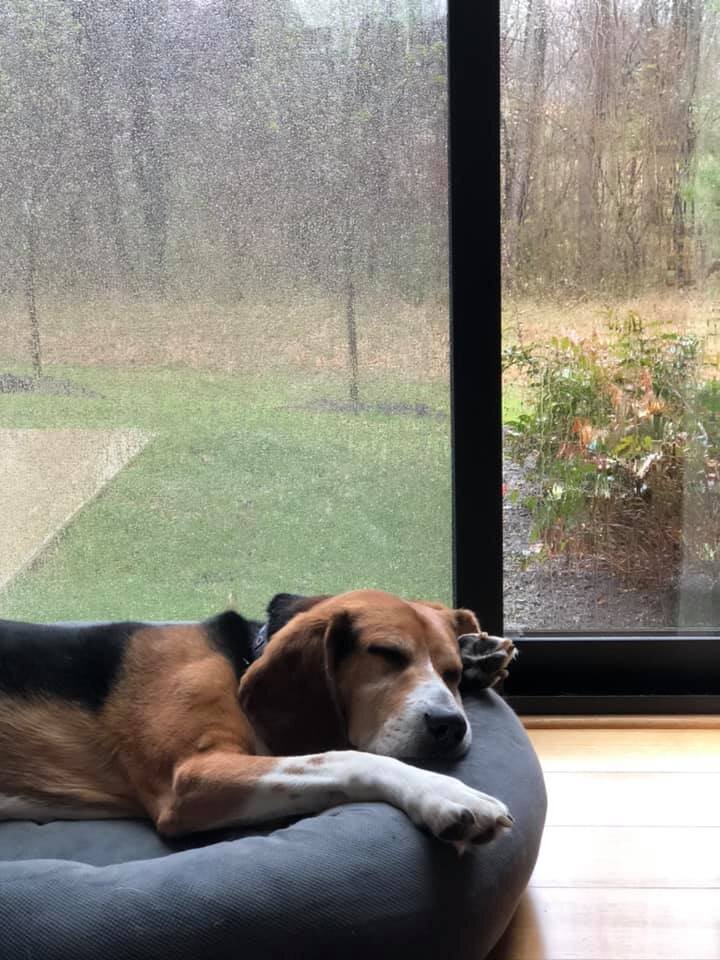1 September 2020
That dog won’t hunt is a folksy Americanism that means a particular idea or plan of action is not feasible. It is based on the metaphor of a lazy or ill-trained hound that would rather lie around or do something other than pursue the intended prey. But while this specific metaphor and wording arises in the mid nineteenth century United States, it has a predecessor in British speech.
That predecessor is that cock won’t fight. Instead of hunting dogs, you have fighting roosters as the metaphor at play. This older phrase is first recorded in the pages of The Loiterer, a humor magazine published by James and Henry Austen, Jane’s brothers. On 5 September 1789 the following appeared in it:
You may be sure that this eloquent harangue was not lost upon me, I immediately began to smoke the old Gentleman. “No, (thought I) that cock won’t fight.”
That cock won’t fight made its way across the Atlantic, where it appeared in Davy Crockett’s posthumous pseudo-autobiography of 1836:
A steamboat stopped at the landing, and one of the hands went ashore under the hill to purchase provisions, and the adroit citizens of that delectable retreat contrived to rob him of all his money. The captain of the boat, a determined fellow, went ashore in the hope of persuading them to refund,—but that cock wouldn’t fight.
The hunting-dog metaphor is documented a few years later, on 9 August 1843, when it appears in a letter to a Washington, DC newspaper about the prospects for the upcoming presidential election in 1844:
Don’t let the friends of Mr. Calhoun and those of Mr. Van Buren get at loggerheads, or anything beyond amicable sparring. We are ready to go for either of them, or for any other sterling Democrat, provided always that he will fight rather than give up Oregon, or any other portion of our country. Cass is much a favorite in this State. I put in a word (formerly) once in a while for Captain Tyler. “But that dog won’t hunt.”
“Captain Tyler” is then-President John Tyler, who had been a captain in the War of 1812. Tyler had been a Democrat before switching to the Whigs in 1834. He was elected to the vice-presidency in 1840 and acceded to the presidency in 1841 upon the death of William Henry Harrison. But he soon broke with the Whigs over the question of a national bank. He attempted to return to the Democrats, but was distrusted, hence the letter writer’s comment. The editor responded to the letter by expanding the metaphor:
We think our correspondent errs when he says, “But that dog won’t hunt.” It is our opinion that he hunts too much; runs after small game; “don’t stand at the tree;” “barks up the wrong tree;” is fit for nothing but a coon dog, and hardly that; and that, in the big hunt of ’44, he will be killed so dead, he will not be able to give one dying yelp.
Tyler would go on to lose to Democrat James K. Polk in 1844, so that dog indeed didn’t hunt.
Sources:
“Extract from a Letter” (9 August 1843). Daily Globe (Washington, DC), 15 August 1843, 3.
The Loiterer, vol. 2 of 2 (no. 32, 5 September 1789, 10). Oxford: 1790. HathiTrust Digital Archive.
Oxford English Dictionary, third edition, November 2010, s.v. dog, n.1; September 2019, s.v. cock, n.1 and int.
Smith, Richard Penn (writing as Crockett, David). Col. Crockett’s Exploits and Adventures in Texas. Philadelphia, T.K. and P.G. Collins, 1836, 99. HathiTrust Digital Archive.
Photo: Dave Wilton, 2020.

